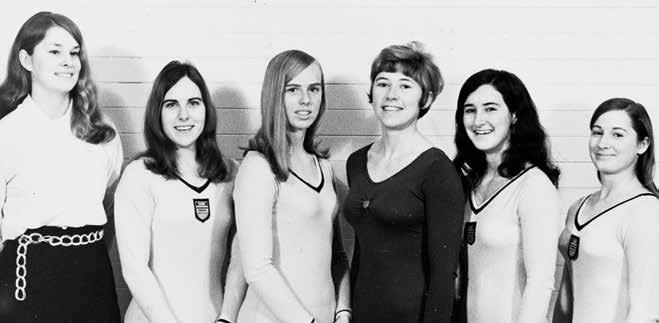
10 minute read
CHAPTER NINE
IT HAS FREQUENTLY BEEN OBSERVED THAT HIGH-PERFORMANCE ORGANIZATIONS TEND TO HAVE SEVERAL PRIMARY
CHARACTERISTICS IN COMMON. THE FIRST IS A STRONG FOUNDATION, OFTEN BUILT UPON DECADES OF EVOLUTIONARY DEVELOPMENT. THE SECOND IS A TENACITY FOR TARGETED GROWTH GROUNDED IN SCHOLARSHIP AND INNOVATION.
THE THIRD IS A CLEAR VISION FOR THE FUTURE, AND A DETAILED STRATEGY TO FULFILL THE VISION, AND A FOURTH IS A COLLECTIVE ENGAGEMENT TO BRING THAT VISION TO FRUITION.
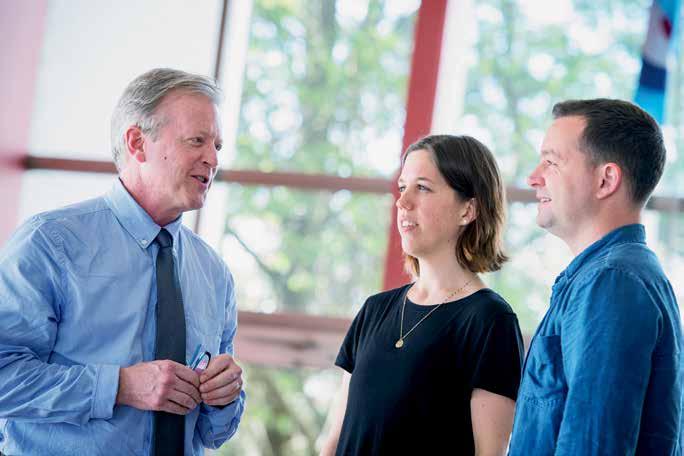
In the spring of 2015, my vantage point upon the UBC School of Kinesiology was the Swedish School of Sport and Health Sciences in Stockholm, The Copenhagen Muscle Research Centre and the Copenhagen School where the field of Kinesiology began. But even when viewed from such distance, it was apparent that the UBC School had an enviable and timetested foundation in the form of extraordinary faculty members, students, staff, undergraduate and graduate programs, and an exemplary record of community service. It also had some 7000 alumni, a great many of whom had become impressive leaders and influencers in a wide range of endeavours. Upon closer examination, it was also clear that its vision to advance knowledge across the sub-disciplines of kinesiology was sharply focused. The strategy it employed to fulfill its vision was less obvious from afar, but it had clearly resulted in escalating levels of research achievement, a truly enriched multidisciplinary learning environment and direct translation of these entities through vibrant community programs.
Caption here without box
Simply stated, it was evident that the school that had been eagerly founded by UBC leaders in the months following the conclusion of the second World War had indeed earned its place among the world’s finest kinesiology programs, intent on making substantial contributions to learning and research for societal good on an ever-widening scholarly spectrum. It is therefore an extreme understatement to say that the opportunity that was subsequently afforded to me to lead such an organization on the next leg of its evolutionary journey was an appealing honor.
Looking back on the School’s most recent and transformational years, it is only appropriate to express gratitude to our longest serving faculty members for their commitment to the School, to their chosen areas of expertise, and for helping to navigate through the changes that have taken place. I am similarly grateful for the work of all former directors and associate directors for the leadership roles they have played, including my immediate predecessor, Bob Sparks, who initiated this book project, and who led the school over the last decade and who has generously shared his wisdom, and Peter Crocker, who remains a valued member of our faculty today. Special thanks as well to senior instructors Barry Legh and Gail Wilson, whose careers included successful varsity coaching roles and formative contributions to outreach programs that are today at the heart of our commitment to the community. I also wish to thank Don McKenzie, who recently retired as director and founding member of the Allan McGavin Sports Medicine Centre, and to congratulate him for his vast research contributions to the field, which situated UBC as a world-leading entity in sports medicine. His leadership at the Olympic level as well as in exercise medicine that ultimately inspired a growing international movement of women to vividly demonstrate, through dragon-boat racing, that there is life after a breast cancer diagnosis are known worldwide. Finally, I join all members of the School in thanking and congratulating retiring faculty member, Ian Franks, for his wide-ranging achievements and contributions over his long and extraordinary career in the science of human movement and as a national leader in coaching.
It must also be acknowledged that the School’s foundation has strengthened by many dedicated non-academic staff members throughout its history, particularly in recent years during which there has been a marked increase in services for students. On that front, I wish to acknowledge Simone Longpré, Fran Harrison, Deborah Gromer and Rob Langill for many years of outstanding service. Tremendous gratitude is also owed to those who have developed and maintained a
Photo: Bob Frid
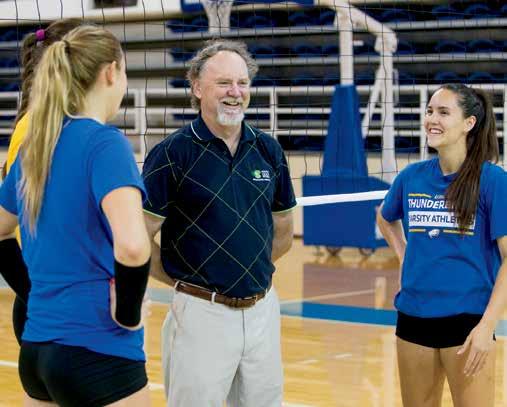
Photo: Bob Frid Peter Crocker

Barry Legh
Caption

Rob Langill
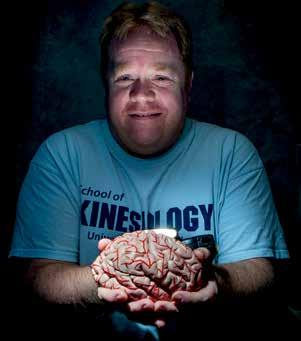
Outreach staff

comprehensive range of community engagement opportunities that deliver long-term health, social vibrancy and well-being to the community through physical activity programs supported by the expertise of the School. In addition to those currently responsible for delivering on these important community imperatives, I wish to thank former program and facility managers Suzanne Jolly and Christina Sequeira for many years of innovative leadership.
In a similar light, my predecessors and faculty colleagues have emphasized that the School has also enjoyed the dedication of a long list of staff administrators right up to and including the present day. I cannot express adequately the importance of their contributions. In particular, however, I wish to highlight our longest-serving staff members of recent years, beginning with Bernice Urbaniak, who served as administrative manager until her retirement in 2011, and Amy Kao who serves in this key leadership role today. Sincere thanks are also in order to executive coordinator and program administrator, Kathy Manson; IT systems analyst, Cliff Storlund, and Osborne Centre facility manager, Halton Lin for their many years of service and contributions to what the UBC School of Kinesiology is today. But what exactly is the School today? I could produce a litany of glowing characteristics, but perhaps a few of the most affirming are that the BKIN degree is one of the most admissions-competitive programs at UBC, and the School’s student ratings of satisfaction are consistently amongst the highest across the university. The School also has the highest representation of academic all-Canadian athletes (varsity athlete scholars) at UBC, many of whom are on national teams, and the School’s graduate students are amongst the highest in tri-council funding success. And although the various international rankings of universities are more art than science, we are all pleased to note that the UBC School of Kinesiology ranked fourth in the world (first in Canada) on the 2018 QS World University Rankings for sports-related subjects.
More importantly, however, what is our vision for the future? Is it the same as it was five or ten years ago? The answer is yes, but the superb calibre of both our faculty and students will no doubt expand the range of possibilities that we might be positioned to explore. It has been extremely satisfying to witness the level of engagement across the school in the recent year-long process that created a new five-year strategic plan.
Caption here without box
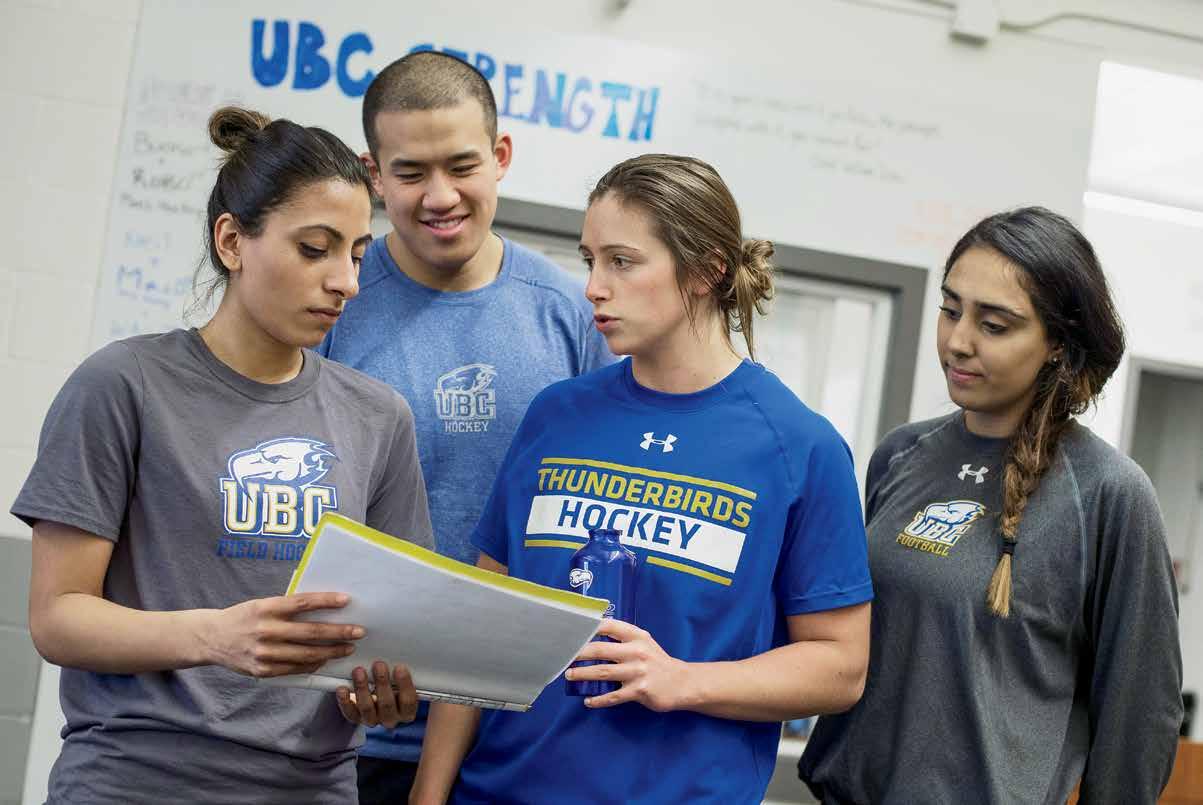
With the leadership of Paul Kennedy, we have revitalized the undergraduate curriculum to blend classical foundations across disciplines with novel course development and experiential learning opportunities that respond to current and future horizons in the field. We are increasingly merging theoretical curricula (constructs) with research-based inquiry to foster a continuum of meaningful learning to ensure that students are equipped with the most innovative tools and translational skills that enable them to pursue an expanding array of career opportunities. The new curriculum includes new streams of disciplinary focus and we are excited about the launch of new curricular and research initiatives in Indigenous Studies in Kinesiology.
At the graduate level, our students are already giving flight to countless ideas and aspirations, both through their own extraordinary talents and greater access to faculty mentors who are among the best in the world. Our MA and MSc degree programs are being revised to allow greater focus on research while the MKin program will incorporate enhanced interdisciplinary practical skill development. The new Master’s in High Performance Coaching and Technical Leadership led by Maria Gallo in partnership with the Canadian Sport InstitutePacific enrolls pan-Canadian national level coaches and is setting trends in innovation for the next generation of Canadian leaders. Plans are underway for a parallel Professional Master’s in Kinesiology to provide training for practitioner scholars in exercise medicine and athletic performance enhancement. The School has also revitalized the Centre for Sport and Sustainability led by Brian Wilson. The research output by faculty has soared in recent years with substantial growth in tri-council and foundation funding success, new faculty hires, outstanding doctoral students, a large expansion of post-doctoral fellows and collaborative relationships nationally and internationally. Mark Carpenter has played a key role in advancing the school’s research capacity by implementing strategic research initiatives supported by novel funding mechanisms. Our current researchers are bolstering networks in a manner that will surely result in further scholarship capacity, all the while creating new opportunities for graduate students.
While our vision is enduring, the strategy we employ to fulfill it will require revisiting and refreshment in alignment with the Faculty of Education and University’s new strategic plans that map out a blueprint for the future. Coupled with our new strategic plan is an accountability framework to document and support our progress led by Kathy Manson in her role as Executive Coordinator and Program Administrator.
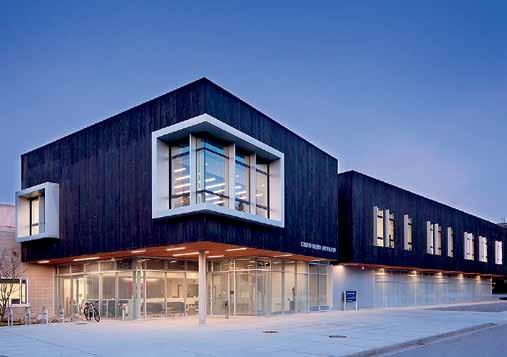
Photo: Martin Dee Moss Norman

Caption
Caption

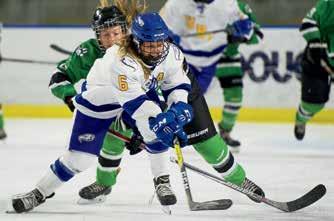
Caption

We are resolutely focused on what is undoubtedly our single most important strategic imperative - overcoming the lingering issue of inadequate and outdated physical space. We simply cannot continue the evolutionary growth of previous decades in facilities that were built during the School’s early years, and that are not conducive to highly innovative collaboration. We have made progress with the recent opening of the new Chan Gunn Pavilion which houses the Alan McGavin Sports Medicine Clinic led by Mike Koehle as the new Director and the School’s Integrative Human Physiology Lab with Bill Sheel as Director. The building which amalgamates the School of Kinesiology’s physiology faculty members with the Sport and Exercise Medicine Program in the Department of Family Practice, Faculty of Medicine, was made possible by generous donations from Dr. Chan Gunn and Jack and Darlene Poole and a substantial award from the Federal Infrastructure Fund. The new building replaces the John Owen Pavilion and continues the legacy of collaboration between the Faculty of Medicine and the Caption
School of Kinesiology initiated in 1979 by the School’s former Director Bob Morford, Bill Webber, Dean of Medicine, and Peter Grantham, Head of the Department of Family Practice. As we go to press, I am hopeful that we will reach approval of a major infrastructure project that will result in a new home for the School that will create a knowledge hub situating the field of kinesiology in a central role in the health and vibrancy of the UBC community, province and nation. Although a capital campaign must be undertaken in the near future to complete the total funding required, we are confident that the many influencers and visionaries at UBC, within government, our alumni and the wider community will share our aspirations to create a multi-use facility in which our accumulated reserves of human capital can be optimized for the greater good of all. These are indeed buoyant times, much like the post-war era of campus-wide growth that occurred when the School was founded in 1946, and indeed a time for anticipation and optimism for what the future might hold. In the meantime, it is only fitting to conclude this retrospective of the UBC School of Kinesiology with a grateful and reverent salute to the men and women who lit the figurative torch back in 1946, and to those who made it burn brighter with every passing year. It is they to whom this book is dedicated.
Finally, on behalf of all current members of faculty and staff, I wish to express our sincere hope that our students and alumni will regard their time at UBC as among the most memorable and fulfilling times of your lives. Although the campus has changed dramatically, we hope that you will return often, with friends and family members, to reconnect with places and people that played formative roles in your own personal journeys.
Thank you for being a part of our history, and very best wishes to all.


